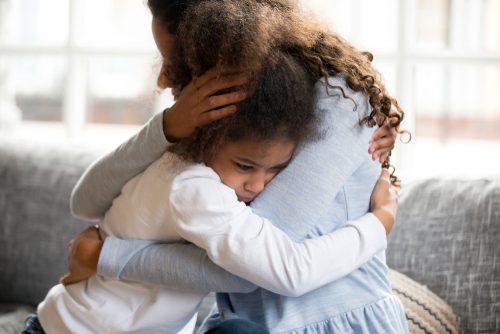Is My Kid Ok? Signs Your Child May Be Struggling.

As we ring in 2021, families are still facing the ups and downs of the pandemic. If you are like many parents, you may have seen changes in your child. The National Institute of Health has reported an increase in anxiety and depression among children and teenagers in the U.S.
You know your child best, if you’ve seen a change in your child’s behavior, but are wondering how to know if your child needs help, here are some tips.
What to Look For
- Kids express anxiety and depression in different ways. Rather than crying, your child might show sadness through irritability, or they might withdraw and spend more time alone.
- How much time do they spend in their room by themselves? Is that more time then they’d normally spend alone? Does it seem like they’re staying in their room when they’d usually be hanging around the family?
- Does it seem like they’re not talking about their peers as much, or not as engaged as they used to be in texting back and forth?
- Are there any changes in their mood? Are they smiling and laughing less? Quieter than usual? More easily irritated?
- Are they sleeping significantly more or less than usual?
- Have they lost interest in their favorite activities?
What to Ask Your Child
- Take a private moment to gently talk to your child about the changes you’ve noticed. If your child has a hard time opening up, try talking about some of your feelings to start the conversation.
- Get in the habit of doing a quick mood check. Ask your child how they are feeling today, but don’t force them to go into great detail if they don’t want to.
What to Do If Your Child Needs Help
- Lots of kids can benefit from mental health support right now. You can reach out to your child’s doctor for help finding a therapist. Family therapy can be a good idea too.
- Remind your child that it’s normal to feel sadness, anger, anxiety and grief right now.
Focus on Healthy Habits
Healthy activities can help you and your child deal with anxiety and depression. Try these coping strategies you can do at home.
- Establish routines to structure the day
- Eat nutritious, balanced meals
- Get exercise
- Get enough sleep
- Spend time outdoors and in nature
Most importantly, be present for your child. Let them know you are there to help them understand and process their feelings. However, If your child’s mental or emotional condition is putting themselves or others in danger, get help right away. You can call 2-1-1, Northeast Florida’s suicide intervention and prevention helpline. Call Center Specialists are also certified and trained to handle crisis and suicide-related calls.
